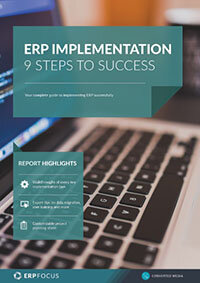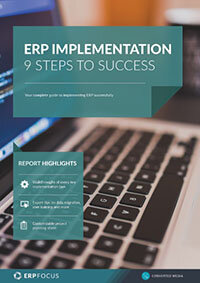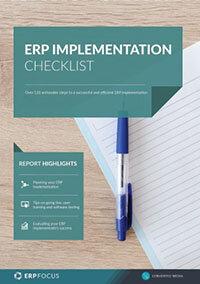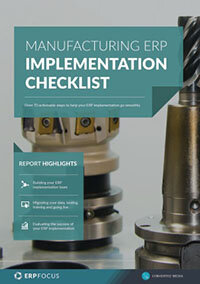Meeting ERP and business process testing challenges head on
While your existing manual application testing approach might still be just about managing to meet current business requirements, the reality for most organisations is that the combination of business evolution, market disruption and rapid digital technology advances is driving the need for much faster and more frequent testing. Whether it’s the requirement for new technology within the applications portfolio, further advancements in areas such as mobile or the Internet of Things, or simply acceleration in digital transformation initiatives, there’s increased pressure on your software testing resources in terms of availability and urgency.
From the CIO’s perspective, you and your team will want to do everything possible to make sure that business impact caused by software or applications failure never happens on your watch. Clearly any disruption to business continuity is unacceptable, so every platform needs to work flawlessly on a 24x7x365 basis. So how can you ensure that your ERP platform is always ready to deliver the functionality and business process execution your company depends on?
If you’re still using a manual approach for ERP testing and quality - with methods that invariably are ponderous, error prone, fragile and costly - you’re most likely struggling to achieve the required levels of testing speed and accuracy. That’s why analyst firm IDC believes that intelligent automation has a critical role to play here, suggesting that it’s “simply not possible to achieve the needed speed and accuracy with non-automated approaches, particularly for business processes.” IDC goes on to suggest that: “dynamic, high-velocity automated testing is key to avoiding the business disruption, lack of visibility, and project backlogs created by manual methods”.
Shifting from individual applications to end-to-end processes
In the ERP arena particularly – where the platform is continually expanding to incorporate new applications and technologies - it is vital that every critical business process works at all times. That’s why we’re now seeing organisations evolving their testing focus from the performance of individual applications to the quality of entire connected business processes.
However, end-to-end processes can now span dozens of enterprise apps and digital platforms, and organisations need to ensure that each one performs exactly as designed. That’s why a growing proportion of the world’s leading organisations are now replacing their manual QA and legacy script-based tools with intelligent test automation to drive a continuous ‘lights out’ testing approach. This not only dramatically lowers the risk associated with software updates, but also helps with new installs of critical enterprise applications such as ERP.
Moving towards an automated ERP testing approach
Automation helps businesses bring continuous change into their ERP landscapes, safe in the knowledge that they have validated the performance of their critical business processes. However, because organisations utilise and customise their ERP deployments in vastly different ways, it’s important to find an automated software testing approach that actually tests your processes in the way you use them.
Automated testing also eliminates the human element and increases predictability in testing timelines, The result is that you will see fewer time and budget over-runs when your primary ERP testing mechanism is fully automated. Also, when your new technology works right the first time for business users, you’ll benefit from a much stronger adoption of new applications. Using automation to document and validate your business processes can also deliver significant benefits when it comes to ERP upgrade project times and expenses, with potential costs reduced by up to 50 percent.
So with an integrated automated business process discovery and testing approach in place, it’s now possible for organisations running complex ERP solutions to meet their traditional software testing challenges head on.
To learn more about automated business process testing and how you can accelerate SAP deployments with automation, visit Worksoft’s automation blog here.
Free white paper

ERP Implementation: 9 steps to success
The 9 proven steps you should follow when implementing ERP

Featured white papers
-

ERP Implementation: 9 steps to success
The 9 proven steps you should follow when implementing ERP
Download -

ERP Implementation Checklist
Over 120 actionable steps to implementing a new ERP successfully
Download -

Manufacturing ERP Implementation Checklist
Over 70 actionable steps to rolling out new manufacturing ERP software
Download
Related articles
-

ERP implementation plan (ERP implementation process guide)
Everything you need to know about running a successful ERP implementation - and we mean everything
-

How the right ERP can help you launch a successful omnichannel business
Petersen Zhu, CEO of DigitBridge and Vibes Base, shares how to create a scalable omnichannel stra...
-

The case for multi-tier ERP implementations
Learn more about multi-tier ERP implementation and why you might need one

